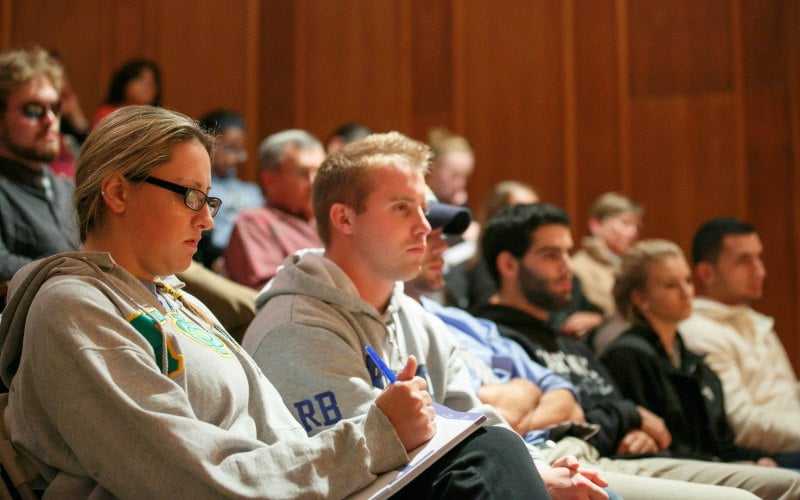Sociology, Criminology & Human Services Department

Department Overview
The study of sociology, criminal justice, or social work helps students develop a critical understanding of the meaning, process, and structure of human interaction and helps them to better understand the past and present as well as to prepare for life in a world of increasing social complexity and interdependence.
Hartwick graduates leave with a broad range of transferable skills, including critical thinking, logical reasoning, knowledge of society and groups, and understanding human experience and interactions. In order to be better prepared for continuing their education in graduate schools and/or employment, Hartwick sociology students are offered great opportunities to participate in social research and internships. Furthermore, with our social work minor, interested students may consider furthering their education or career in the field of social work.
Additionally, our criminal justice major will enable students to understand the inner workings of the criminal justice system on a practical level, as well as the key theories behind criminality and the way the United States enacts laws and punishments at a scholarly level.
Please note: Hartwick College focuses on offering fall, January, and spring term undergraduate courses in person, however circumstances may require us to offer a small number of courses in this department through distance education. In times of emergency, following regulatory guidelines, all classes may temporarily need to be delivered through distance education, including online. We also offer a slate of courses online in the summer to help our students make progress towards their degrees. With support from an academic advisor, students needing particular courses may have other online options as well. If you have questions about the way courses are delivered in your program, please contact your Department or Program Chair.
Ready to study sociology, criminal justice or social work?
The areas of study offered by the Department of Sociology, Criminology, and Human Services provide insight into how people function in social relationships, as couples, families, communities, organizations, political institutions, social movements, and nations.
These areas examine social structures based on race, ethnicity, gender, religion, age, economic status, and global location and helps develop understandings of various social processes in the changing world.
In addition to the major and minor requirements, Hartwick’s sociology students may concentrate in areas of departmental focus and expertise: criminal justice, social work, community advocacy, social and political rights and movements, forensic science, health and medicine, and others.
Review all the major and minor requirements in the College Catalog.
Our professors use a wide range of challenging teaching and learning methods.
Coursework often entails the use of video production, small group workshops, computer-assisted teaching, field trips, and community-based service-learning opportunities, designed to demonstrate and connect the theory and practice of sociology.
Review the current course offerings in the College Catalog.
Special Opportunities
Hartwick’s sociology and criminal justice majors offer students immediate opportunities to apply what they are learning in the classroom to fieldwork and internships – in the U.S. and internationally. Many courses provide community-based learning opportunities that connect students directly to local, national, and international organizations and allow them to explore and gain experience in contexts they may wish to pursue as careers. Additionally, there is plenty of opportunity to work with criminal justice-oriented non-profits and organizations in the greater Oneonta community. Students also gain personal insight and understanding of their own social and political conscience, giving them the confidence to become truly productive citizens.
Still Have Questions?
Contact Dr. Ryan Ceresola, Associate Professor & Department Chair
[email protected]